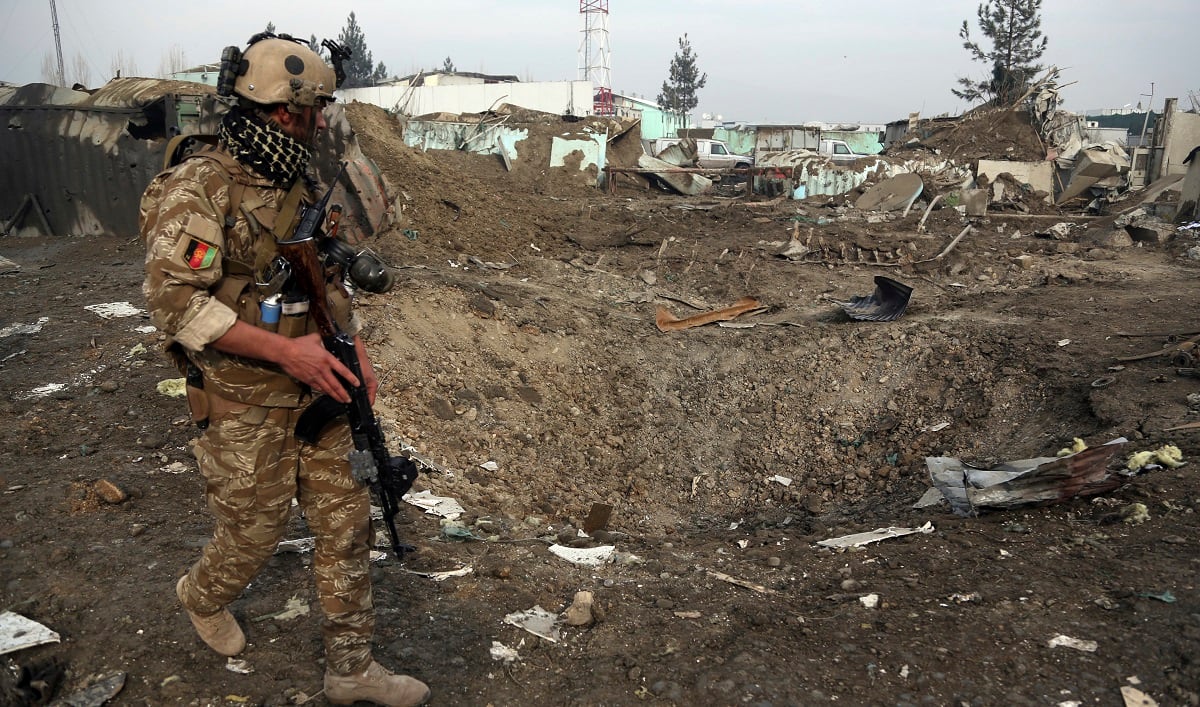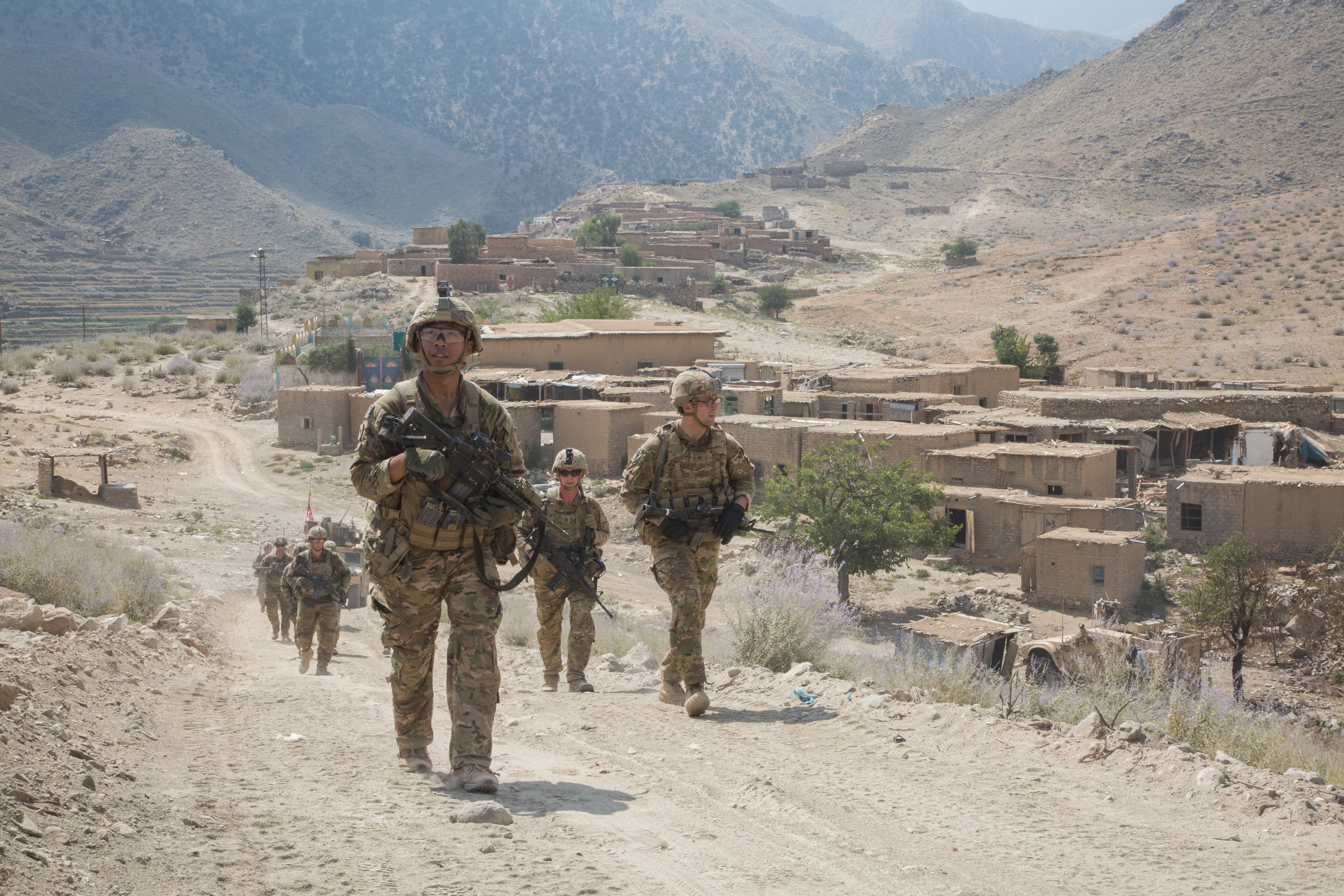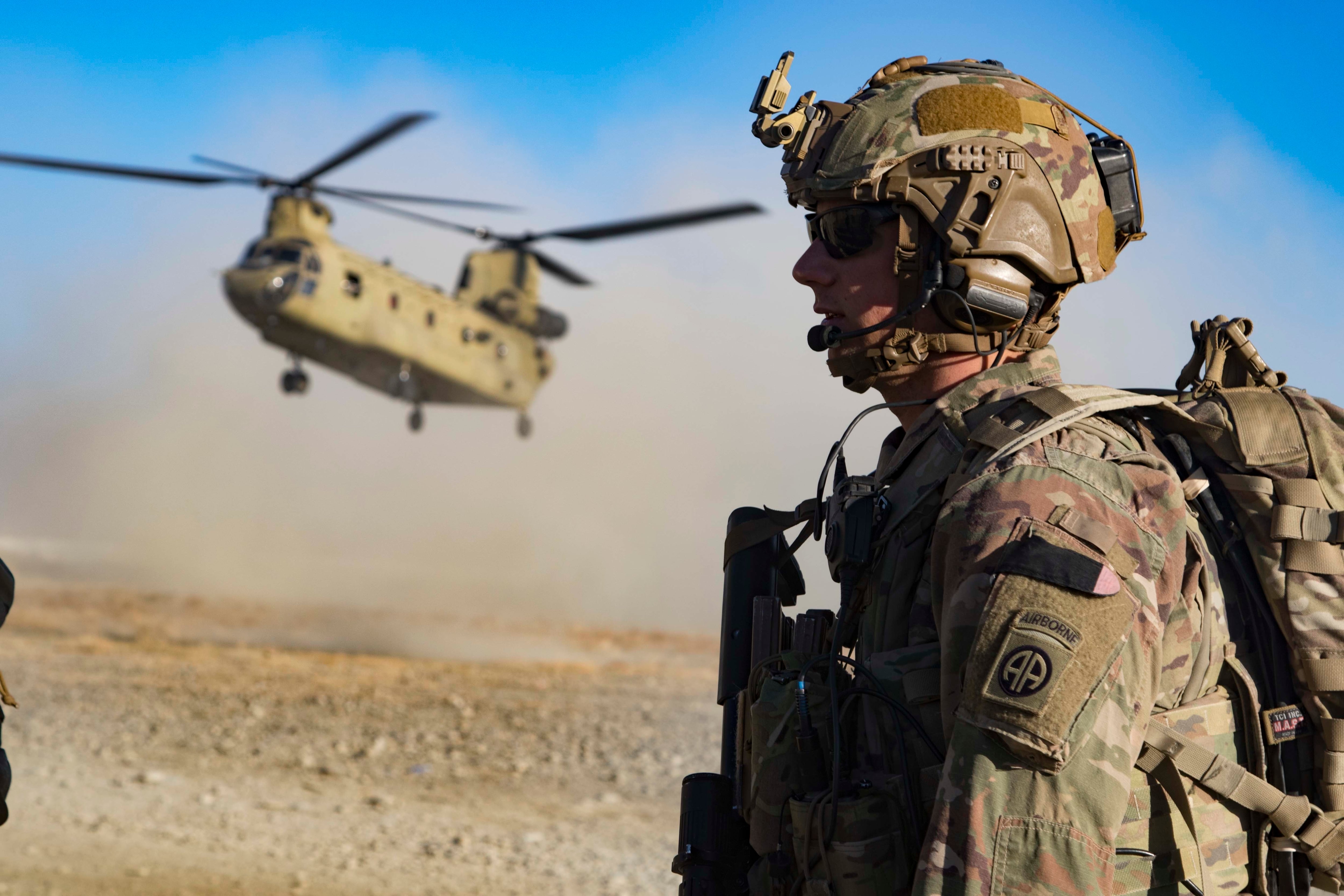The commander of U.S. Central Command told lawmakers Tuesday on Capitol Hill that the military has yet to develop plans for a full withdrawal from Afghanistan despite a signed agreement with the Taliban to draw down all American forces within 14 months.
U.S. Forces Afghanistan announced Monday that the U.S military had started its drawdown to 8,600 troops over the next 135 days as stipulated by the Taliban deal. The U.S. military also praised President Ashraf Ghani’s promise to start releasing Taliban prisoners after delaying for over a week after the deal was signed.
Marine Gen. Kenneth McKenzie Jr. told lawmakers during a House Armed Services Committee hearing Tuesday he has not received guidance from higher-ups to reduce the American footprint below 8,600, and that he would advise not reducing the American footprint below that number if conditions on the ground were not right. He added that he is skeptical the Taliban will honor their part of the peace deal.
Secretary of Defense Mark Esper has routinely explained America’s Feb. 29 deal signed in Doha, Qatar, is conditions-based upon the Taliban living up to commitments to reduce violence, cut ties with al-Qaida and to fight ISIS. The next crucial step was to be intra-Afghan talks in which all factions, including the Taliban, would negotiate a road map for their country’s future.
RELATED

Kathryn Wheelbarger, assistant secretary for international security affairs, told HASC members Tuesday that the plan to withdraw all American troops from Afghanistan was an “aspirational benchmark” that could change with progress of the peace talks.
But lawmakers expressed concerns that America’s precipitous exit from its longest war could see a costly return of U.S. troops to Afghanistan should the Taliban breech the deal or renege on its agreement to combat remnants of ISIS fighters across the region.
McKenzie told the HASC that an American return to Afghanistan could be problematic should U.S. forces close Bagram Air Base and leave the country. “We’ve looked at all kinds of over-the-horizon options and none of them are particularly good,” and getting into Afghanistan was difficult the first time, he said.
U.S. officials and national security experts have expressed concern that a U.S. power vacuum in Afghanistan could breathe new life into ISIS and a plethora of other terrorist groups across Afghanistan.
A key understanding of the U.S.-Taliban deal is that the Taliban would continue to fight ISIS remnants as U.S. forces withdraw.
McKenzie told lawmakers that Taliban military operations against ISIS was a matter of “will,” not capacity. Over the last several months, McKenzie explained, “we’ve watched the Taliban compress and crush ISIS presence on the ground in southern Nangarhar."
McKenzie said the Taliban was “very effective” fighting ISIS and that the insurgent group “paid a very steep price” in terms of fighters lost on the battlefield. It was a “bloody mess," McKenzie said, describing the Taliban’s fight to clear ISIS fighters.
The Islamic State recently lost its stronghold in Nangarhar, but the group has not been completely defeated.
The CENTCOM commander explained it was “critical” the Taliban and Afghan military operate together to sustain operations against ISIS across the country. McKenzie said he has not seen the Taliban make any moves towards working with Afghan forces to combat jihadi groups.
But McKenzie was pessimistic the Taliban would live up to its signed commitments with the U.S.

He said he had “no confidence” that the Taliban would honor the deal. He told lawmakers that recent Taliban attacks across Afghanistan have been small in scale and not directed at cities.
“But those attacks are occurring and they are not consistent with the movement toward a negotiated settlement and they are not consistent with the undertaking they made," McKenzie said.
Nasrat Rahimi, a spokesman for the Afghan Ministry of Interior Affairs, tweeted March 10 — the expected start date of intra-Afghan negotiations — that there have been 32 Taliban attacks across Afghanistan over the last 24 hours.
RELATED

“We are going to have to see in order to believe,” McKenzie said about the Taliban honoring its commitments. “We will see what happens on the ground.”
The CENTCOM commander said it could take time to see progress. He explained to lawmakers that the Taliban may be juggling a fractured command and a disjointed command and control, complicating efforts to control fighters on the battlefield.
Lawmakers expressed concern that the closure of Bagram Air Base and withdrawal of American forces from Afghanistan could be costly should U.S. troops have to return to the battlefield if the Taliban deal collapses.
McKenzie said that a Taliban return to power in the wake of a U.S. departure was not a given as the Taliban face a number of challenges to include distrust among the local population.
There’s “no perfect secret plan to take over," he said. “We should not assume they will run to victory as we withdraw.”
President Donald Trump said March 6 at the White House that it was possible the Taliban could overrun the Afghan military following a U.S. withdrawal.
McKenzie said he would advise not withdrawing U.S. troops if Afghan security forces are not capable of defending the country.
Further complicating the process is the fact that Ghani and his main political rival, Abdullah Abdullah, were each sworn in as president in separate ceremonies Monday. Abdallah and the elections complaints commission had charged fraud in last year’s vote. The dueling inaugurations have thrown plans for talks with the Taliban into chaos, although Ghani said Tuesday that he’d start putting together a negotiating team.
The disarray on the Afghan government side is indicative of the uphill task facing Washington’s peace envoy Zalmay Khalilzad as he tries to get Afghanistan’s bickering leadership to come together. In an early Tuesday tweet, Khalilzad said he hoped the two leaders can “come to an agreement on an inclusive and broadly accepted government. We will continue to assist.”
U.S. Secretary of Defense Mike Pompeo warned against “any use of force to resolve political differences.” Both candidates — but particularly Abdullah — are backed by warlords with heavily armed militias, underscoring fears they could use force to back their candidate.
Ghani had been dragging his feet on releasing some 5,000 Taliban prisoners, something agreed to in the U.S.-Taliban deal. Ghani promised Monday to announce a decree to free the prisoners after the U.S. and a number of foreign dignitaries appeared to back his claim to the presidency by sending their representatives to his inauguration.
Taliban officials said late Monday that a flurry of biometric identifications were being conducted on Taliban prisoners, hinting at a mass release, according to prisoners currently in lockup. The Taliban officials spoke on condition of anonymity because they weren’t authorized to talk to the media.
The Associated Press contributed to this report.
Shawn Snow is the senior reporter for Marine Corps Times and a Marine Corps veteran.





